
Gods Guns And Missionaries Review
Plurality of Hindu way of living made me curious
Growing up, I loved all the festivals. Diwali and Dashehara were my favorites. The vacations, sweets, and festive atmosphere made everything magical. It was pure fun!
Diwali spans several days, each with its own meaning. In our household, Laxmi Pujan was the big day. But at my uncle’s house, they focused on Dhanteras. Another uncle celebrated Padwa as the main event. I got multiple days of celebration from this beautiful chaos.
Dashehara was special in our town. Everyone walked together to the town’s edge. This walk symbolized crossing boundaries to conquer new territories, just like our ancestors did. Then we visited family and friends, collecting sweets and toffees along the way.
But on TV, I saw other towns celebrate Dashehara differently. They burned giant effigies of Rawan, the villain from Ramayana. Same festival, completely different traditions.
As I grew older, these differences made me curious. Every household celebrated festivals their own way. Each family had their own traditions. Different households worshipped different deities too. Variety was everywhere.
Many festivals existed. Many ways to celebrate the same festivals. Many Gods and deities, with even more ways to address them. This variety extended to foods and clothes tied to specific festivals in specific areas. Yet all of these were Hindu festivals.
I had friends from different religions. Even as a child, I noticed how uniform their practices were. Their customs and traditions stayed almost the same across households and regions, with only small variations.
I carried this curiosity through childhood. Then, like most adults, I accepted that Hindu customs were just diverse. I stopped thinking deeper about it until I discovered Manu Pillai’s fascinating book: Gods Guns And Missionaries. This became the book that answered my questions about Hinduism.
The Book That Answered My Questions
I see Gods Guns And Missionaries as Hinduism’s biography. Manu Pillai tells the story of this ever-adapting, ever-expanding religion. The book traces how Hinduism has evolved over years, decades, and centuries in response to social change, political shifts, trade, and new technology.
As the author walks us through the corridors of history, we discover many stories—some unknown, some long forgotten. These tales help us see how religions didn’t just clash; they interacted, adapted, and found ways to live side by side.
Hinduism, especially, shows this process in a unique way. Since it’s not based on a single book, it could bend and evolve more naturally over time. The book also shows how political support played a powerful role in shaping religions. Being close to power often influenced how a religion grew—or changed.
This Gods Guns And Missionaries review wouldn’t be complete without mentioning how perfectly this story explains the variety we see in Hindu customs. At the same time, it reveals what has kept this religion united and thriving.
Reading Insights
This book shows deep research. It traces how the religion changed over centuries, focusing mainly on post-colonial times. Despite the complex topic and thorough research, the author keeps it flowing and entertaining. He fills it with interesting stories and historical tales. It’s an enjoyable read that informs, enlightens, and entertains all at once.
The author states his goal clearly: “The book is not a history of Hindu philosophy…or of the Vedas and holy texts…it is only an investigation into human action and reaction in the context of political conquest, cultural domination and resistance.” He stays true to this promise.
Sometimes I found sentences a bit complex. A few words stretched beyond my comfort zone. But a dictionary and an AI assistant made it manageable. (I’ll write about this experience soon!)
About the Author (From Goodreads)
Manu S. Pillai was born in Kerala in 1990 and educated at Fergusson College, Pune, and at King’s College London. Following the completion of his master’s degree, where he presented his thesis on the emergence of religious nationalism in nineteenth-century India, in 2011-12, he managed the parliamentary office of Dr Shashi Tharoor in New Delhi and was then aide to Lord Bilimoria CBE DL, a crossbencher at the House of Lords in London in 2012-13. That same year he was commissioned by the BBC as a researcher to work with Prof. Sunil Khilnani on the ‘Incarnations’ history series, which tells the story of India through fifty great lives.
His other books are, Ivory Throne: Chronicles of the House of Travancore, REBEL SULTANS : The Deccan from Khilji to Shivaji, THE COURTESAN, THE MAHATMA, AND THE ITALIAN BRAHMIN: TALES FROM INDIAN HISTORY
Get this book
You can buy here Gods Guns & Missionaries: The Making of the Modern Hindu Identity by Manu S. Pillai
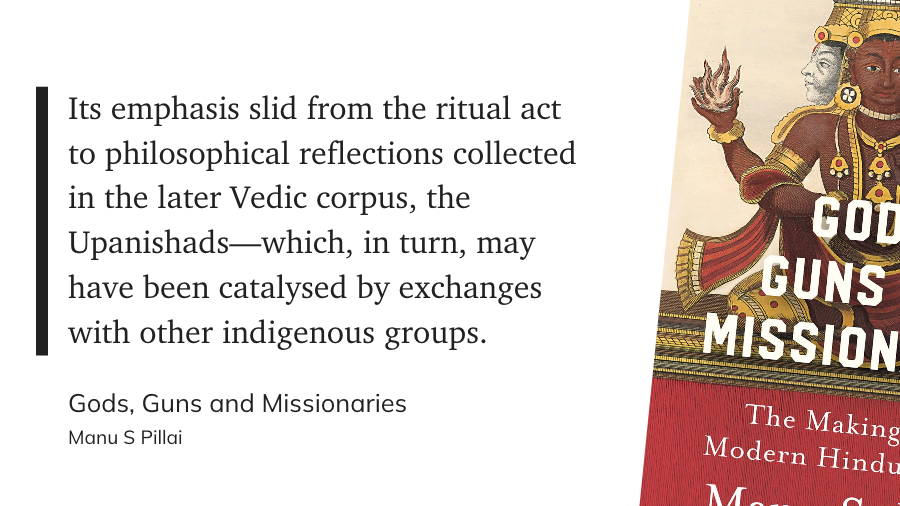
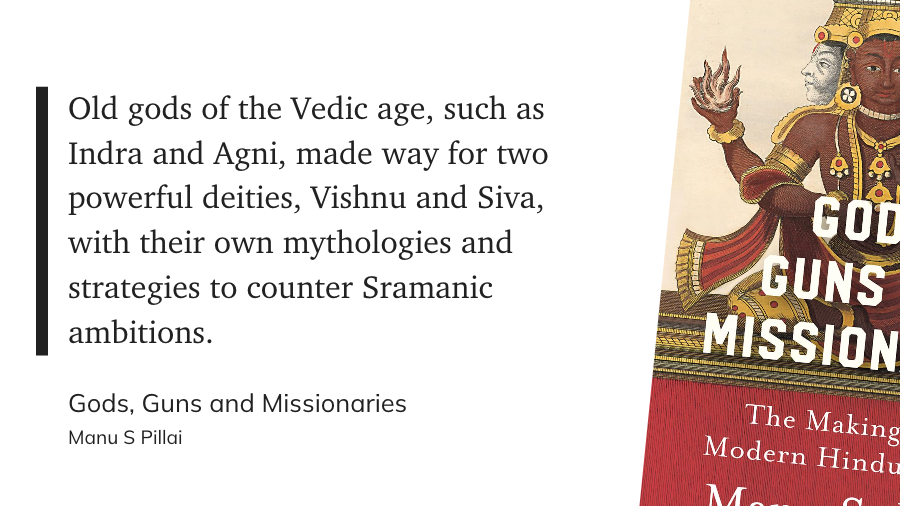
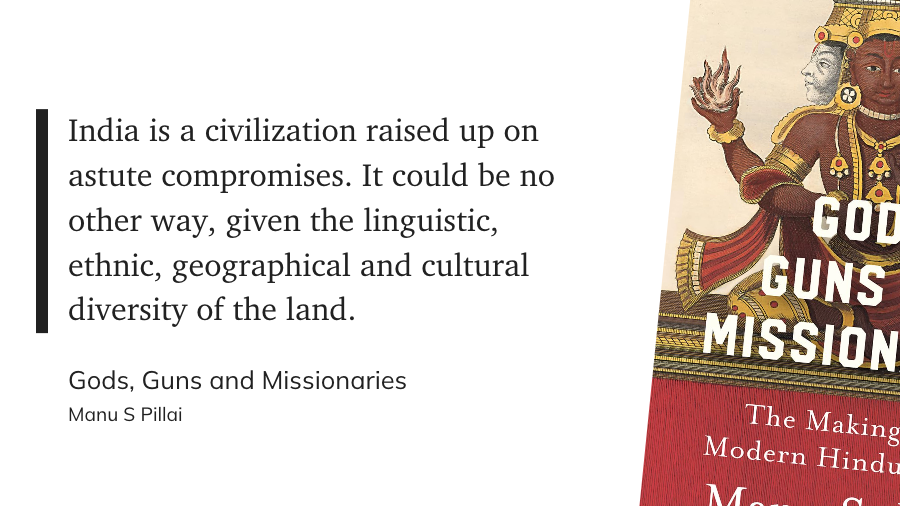


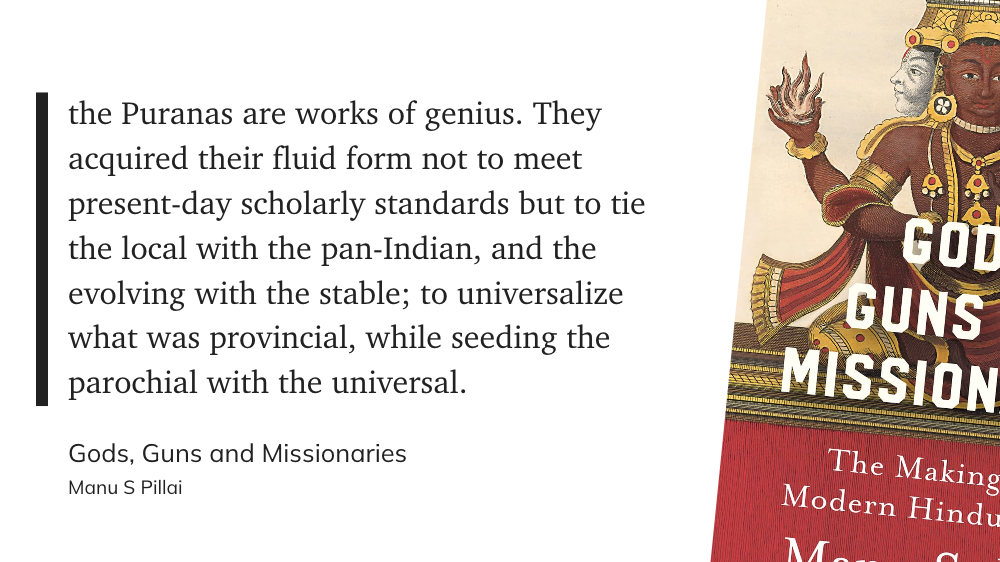


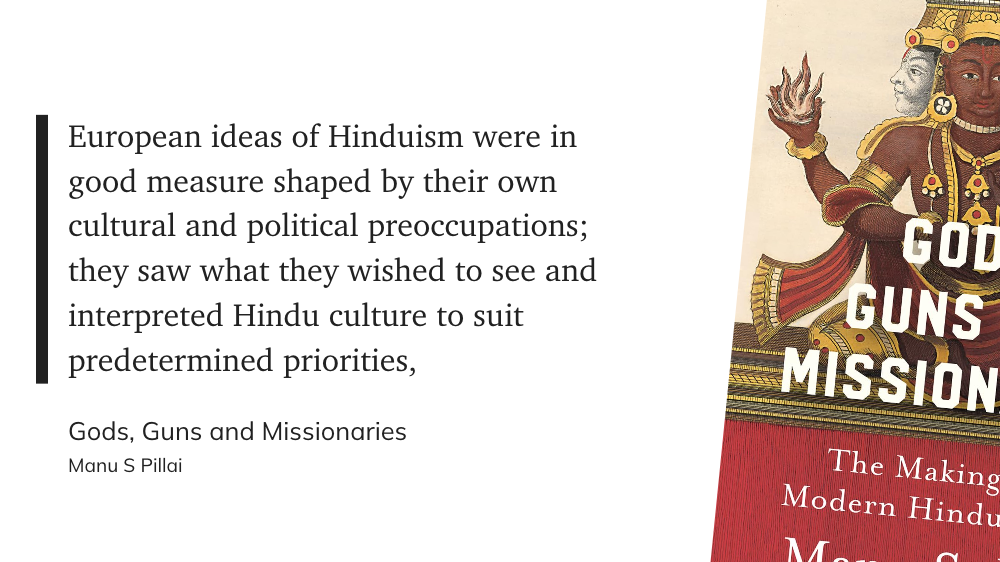
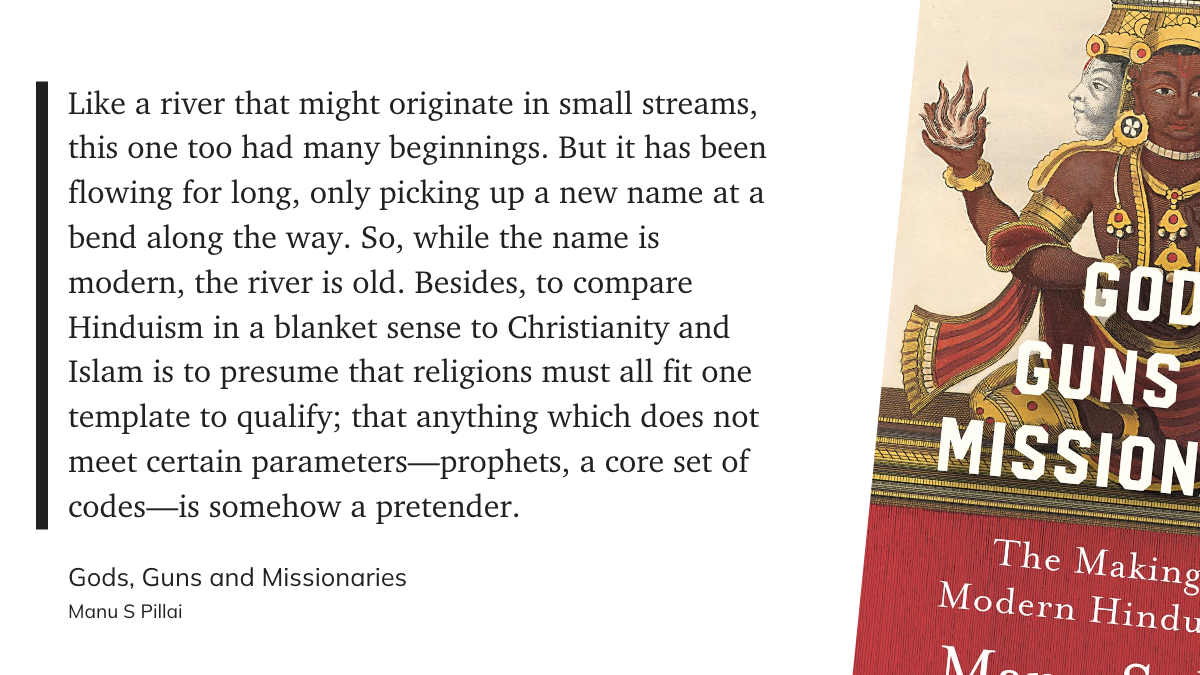
Your review of any book always make us read.. I appreciate and simultaneously congratulate you for such write ups. As you mentioned, the author’s goal is promising, this is remarkable because now-a-days such titles especially Hinduism has become the means of diverting the youths. This book will really help to add something positive in the making of modern Hindu identity. Nicely presented with thought provoking quotes. Warm regards.
Your review of any book always make us read. I really appreciate and simultaneously congratulate you for such write ups. As you mentioned the author’s goal is promising, this is remarkable because now a days such title especially like Hinduism has become the means of diverting the youths. This book will really help to add something positive in the making of modern Hindu identity. Nice review and nicely presented in your blog with favourite quotes. Warm regards.
Thanks for the appreciation sir. I am sure you will like reading it.
Loved this book from the get go! The 1st chapter itself is fascinating! Although it looks like an intimidating read, Manu Pillai makes it intriguing and interesting . Also, an audiobook in the author’s own voice is available on Audible. It will make life easy if you want to read/listen to the book in the go.
That’s a great input. Thanks. I would say that if someone doesn’t want to read the whole book, reading just the detailed introductory chapter would be quite insightful. And great to know that the audio version has made it more easily accessible.